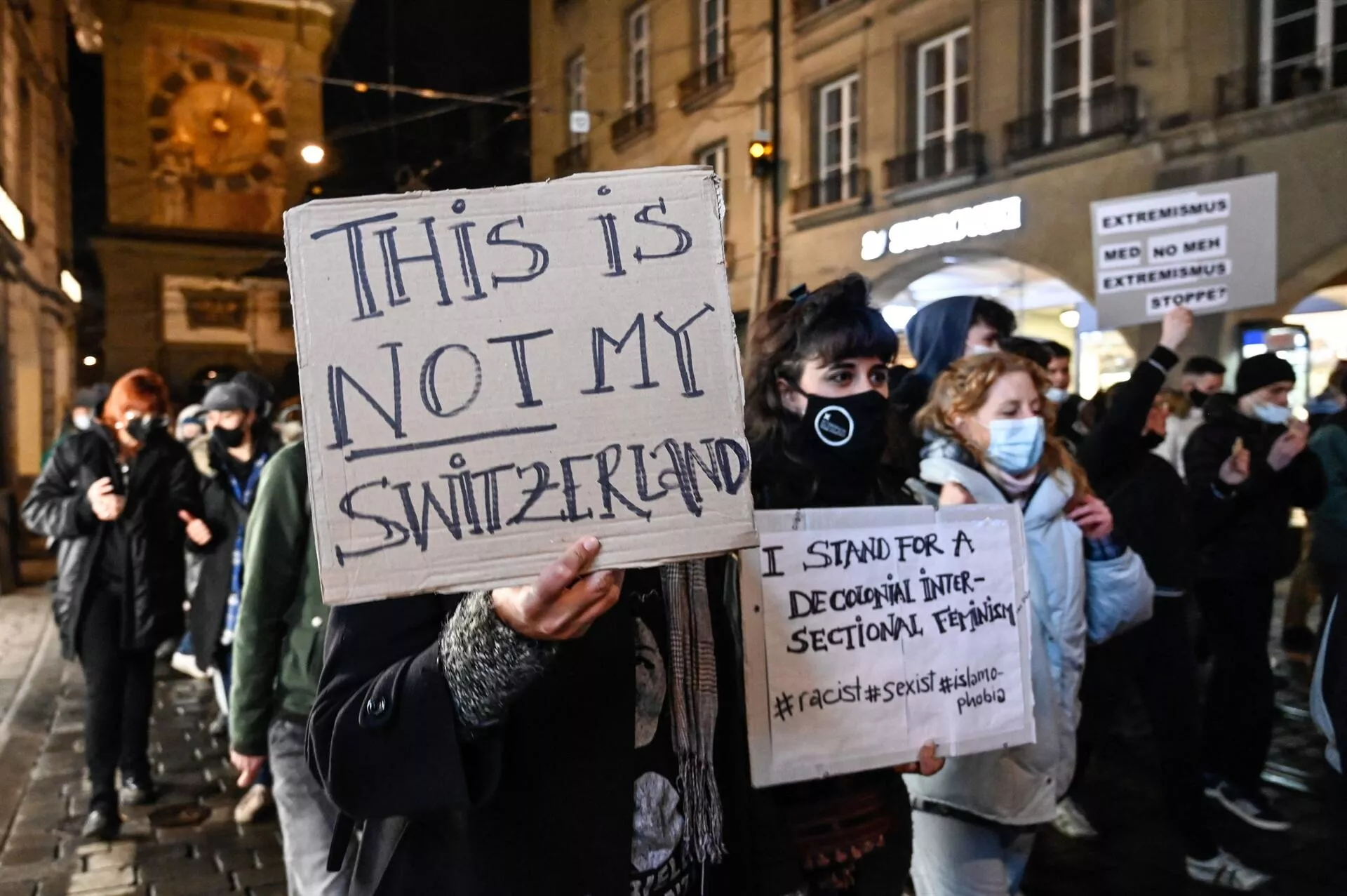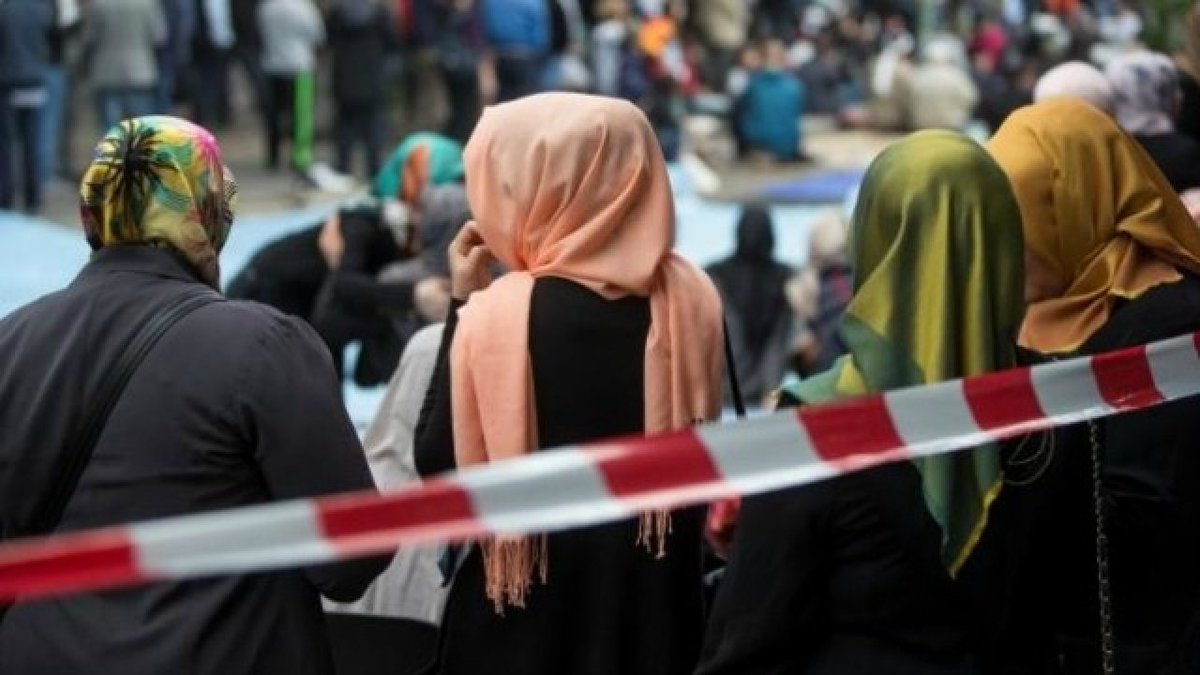No Freedom to Muslim Women: Switzerland Bans the Islamic Niqab and EU Court Allows Hijab Ban in Work Areas

It is only a few weeks before the "niqab ban" law takes effect in all Swiss organizations after the state's government referred the bill to parliament on Wednesday for discussion and ratification.
While a number of observers see it as a racist measure against the country's Muslim community, the way the law was voted reflects a clear growth of Islamophobia suffered by a large segment of Switzerland's adherents.
'Burqa Ban'
Citing the local website Swissinfo, the Swiss government wants to impose fines of up to 1,000 francs on people who violate the ban on the niqab.
According to this law, it is forbidden to hide the face in public places, and it is obligatory to leave the eyes, nose, and mouth exposed. It will also be applied in all public or private spaces accessible to the public, including schools, courts, hospitals, and public transport, as well as restaurants, shops, cinemas, and sports halls.
The law dates back to a referendum held by the country in March 2021. The government first proposed that the ceiling of fines be 10,000 francs, and after consultations, it was reduced to a maximum of 1,000 francs in the last version of the project.
A number of Swiss politicians, including members of the government, opposed the niqab ban, saying it served Islamophobic "symbolic policies" and did not target any real problem.
Justice Minister Karin Keller-Sutter confirmed during the election campaign that only a few dozen women wear the niqab in Switzerland, but "some discussions made me feel like we were living in Kabul."

In recent years, Switzerland has seen a growth in hatred against Muslims. Recent studies reveal that nearly half of Swiss citizens consider Islam a threat.
In a 2016 government census, Muslims in Switzerland account for a third of racial discrimination cases based on religion.
Observers attribute this recent growth to the rise of right-wing parties in the country and the wave of Western media incitement against Muslims since the events of September 11 in the United States.
According to Andreas Tunger-Zanetti, a researcher in religious studies at the University of Lucerne, the beginning of the third millennium "was the time when Europe realized that terrorism did not happen only on the other side of the Atlantic."
As the media sought to associate it with Islam, and as such, Andreas says: "If I hear about Islam only in relation to wars or terrorist attacks, then I have to feel that there is a strong connection between this religion and terrorism."

Europe Court
The ban on niqab and the campaign against the hijab, in general, is not limited to Switzerland only. Rather it is an official European phenomenon.
Last week, the European Union's Court of Justice said that companies in the European bloc could ban the hijab as long as it does not discriminate between employees, in the latest ruling in a case that has divided Europe for years.
The case concerns a Muslim woman who was told she could not wear the hijab when she applied for a six-week job internship at a Belgian company.
The company said it was following what it called a "neutral rule" that did not allow wearing a headscarf, whether it was a hat, a hat, or a scarf.
The woman filed her complaint with a Belgian court, which in turn sought advice from the Court of Justice of the European Union.
The Luxembourg-based Supreme Court said there was no direct discrimination in such a ban, as it put it.
"The internal rule of any economic activity prohibiting the wearing of religious, philosophical or spiritual signs that can be seen does not constitute direct discrimination if applied to all employees in a general and non-discriminatory manner," the judge's decision stated.
The court said last year that EU companies could prevent employees from wearing a headscarf under certain circumstances if they were to present a neutral picture to customers.
In Germany, bans on the hijab for women at work have sparked controversy for years, with most cases involving female teachers who aspired to work in public schools and women training to become the judiciary.
For years, European countries have been locked in fierce debates pushing for laws to prevent banning all religious symbols within their educational institutions and main facilities.
With the recent Supreme Court decision, Muslims in Europe are increasingly fearful of racial exclusion and widespread harassment behind the guise of the law.

France's Imitation
France, which has Europe's largest Muslim minority, has banned the wearing of the hijab in public schools since 2004.
At the same time, it has generally obliged female civil servants to investigate what it calls "total neutrality" without the French authorities legally resolving the issue of wearing the hijab in other companies and institutions.
In 2014, France's Supreme Court upheld a ruling to dismiss a worker from her job for wearing a hijab.
Recently, as part of a separatist bill passed by the French Senate, a fierce campaign has been launched in France that the far-right has further fuelled, fighting the hijab of any girl under the age of 18.
This week, a bill banning wearing the hijab in sports competitions will be referred to the French National Assembly after the Senate refused to vote on the legislation.
The bill aims to "democratize sport," including the rules governing the management of major sports federations. But it includes a clause previously appended as an amendment by the conservative-dominated Senate that prohibits wearing "visible religious symbols" at events and competitions organized by sports federations.

Wearing religious symbols in public and placing religion, in general, have long been controversial topics in France, a secular country home to Europe's largest Muslim minority.
Identity and the status of Islam in French society are thorny issues preoccupying public opinion ahead of the presidential election in April, in which two far-right candidates whose platforms rely on questioning the compatibility of Islam with the republic's values are contesting.
Macron's government was quick to denounce the amendment. With his party and allies in the House of Representatives, the amendment is likely to be removed from the bill.
France will host the 2024 Summer Olympics, in which players from conservative Muslim countries will participate, and critics of the legislation have questioned how much of an impact it will have on the fashion protocol at the games if passed.











